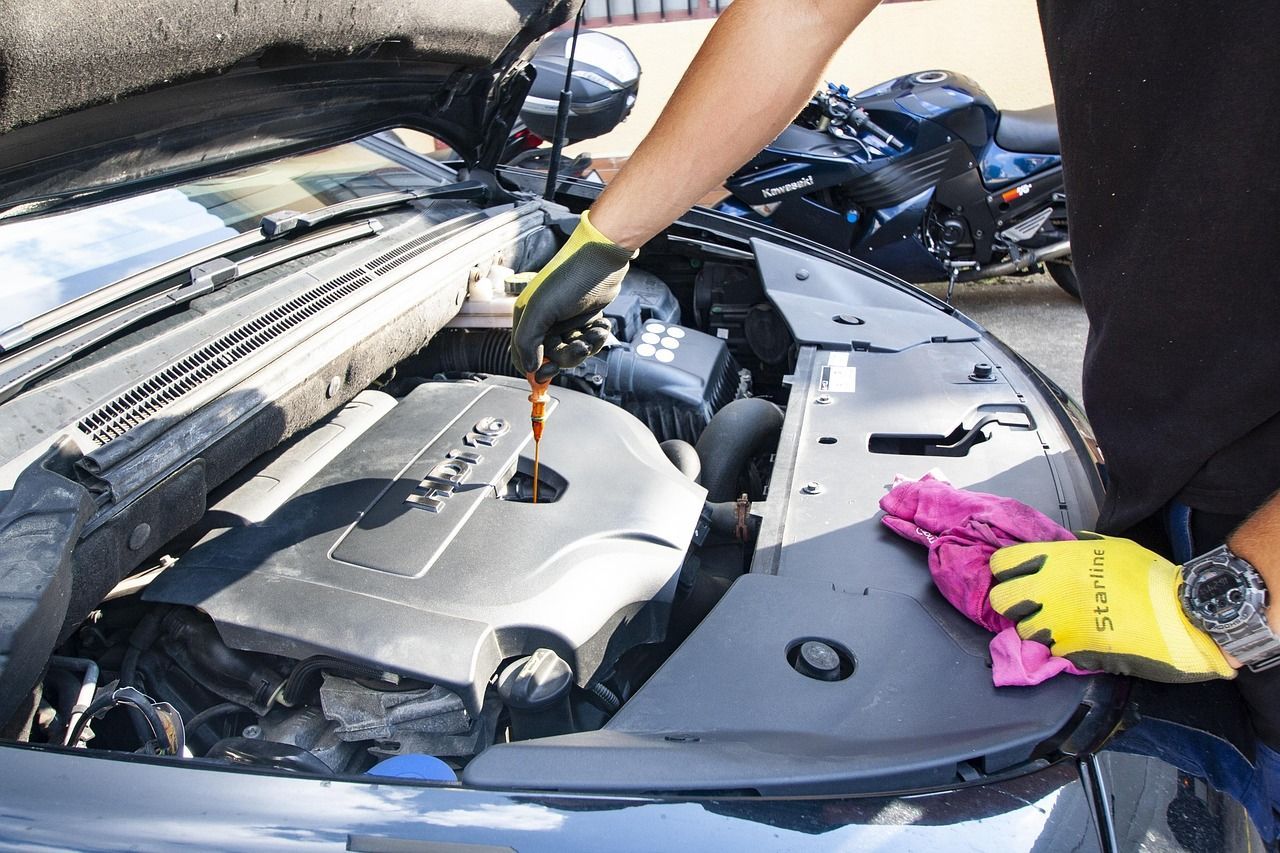Benefits of Regular Engine Oil Changes for Prolonging Your Vehicle’s Lifespan
Your vehicle may look sleek on the outside, but under the hood, it's a whole different story. The real magic happens in your engine, and like any hard-working machine, it needs proper care to last. One of the simplest and most crucial maintenance tasks you can perform is a regular car engine oil change.
You might be tempted to push that oil change reminder a few hundred miles, but neglecting your engine oil is like trying to run a marathon in flip-flops. It just doesn't end well. In this post, we’re diving deep into the real reasons why consistent oil changes are essential and how they can help your vehicle stay reliable and road-ready for years to come.
Why Engine Oil Matters More Than You Think
Think of engine oil as the lifeblood of your vehicle. It keeps your engine cool, clean, and properly lubricated so all those fast-moving metal parts don’t grind themselves into dust.
Here’s why engine oil is a superhero in disguise:
- Lubrication: Your engine is made up of hundreds of moving parts. Oil keeps these parts slick and sliding smoothly instead of grinding and overheating.
- Cooling: Oil absorbs some of the heat from the engine, preventing it from getting too hot under pressure.
- Cleaning: Oil traps dust, debris, and microscopic metal particles that build up over time, keeping your engine cleaner inside.
- Preventing corrosion: Fresh oil helps protect engine components from oxidation and rust.
- Improving fuel efficiency: A clean, lubricated engine runs more efficiently, meaning better gas mileage and fewer trips to the pump.
Skipping an
oil change isn’t just a minor oversight. Over time, dirty oil turns into sludge and loses its ability to protect your engine, leading to costly repairs or even engine failure.
The Long-Term Benefits of Regular Car Engine Oil Changes
We get it. Life gets busy. But taking a quick trip for an engine oil change every few months could be the best investment you make in your vehicle’s long-term health.
Here’s what consistent oil changes really do for you:
- Extend engine life: Fresh oil reduces wear and tear, helping your engine stay strong even after the 100,000-mile mark.
- Prevent breakdowns: Clean oil minimizes overheating, prevents metal friction, and reduces the risk of unexpected engine trouble.
- Maintain resale value: A well-documented service history, including regular oil changes, can increase the value of your vehicle when it’s time to sell.
- Reduce emissions: Dirty oil contributes to higher exhaust emissions. Fresh oil helps keep your car running cleaner and greener.
- Better performance: If your car feels sluggish or is guzzling gas, your engine might be overdue for an oil refresh. Smooth-running engines make for happier drivers.
Getting regular
car engine oil changes isn't just about following a sticker on your windshield. It’s about keeping your engine healthy and avoiding future headaches.
Common Myths About Engine Oil and Oil Changes
Let’s bust a few myths that keep drivers from taking engine oil changes seriously.
Myth 1: “I only drive a little, so I don’t need to change the oil often.”
Even if you barely hit the 3,000-mile mark, oil still degrades over time. Moisture and contaminants can build up, especially with short trips where the engine doesn’t get hot enough to burn them off.
Myth 2: “I changed it last year, so I’m fine.”
One year is a long time in oil years. If you can’t remember your last oil change, chances are your engine is begging for one.
Myth 3: “The dashboard light hasn’t come on, so I’m good.”
Waiting for the oil light to come on is like waiting for smoke to come out of your toaster before realizing your bagel is burning. By the time that light comes on, the damage could already be done.
Changing your oil on time is a small effort that prevents big problems. Trust the science, not the myths.
Signs It’s Time for an Oil Change
Your car won’t send you a handwritten letter when it’s time for quick oil change, but it does drop some hints.
Keep an eye out for these clues:
- Engine noise or knocking: Louder-than-usual engine sounds could mean your oil isn’t lubricating like it should.
- Oil smell inside the car: That burning oil smell is never a good sign. It could mean a leak or old oil that needs changing ASAP.
- Dark or dirty oil: Fresh oil is amber and transparent. Dirty oil looks thick, gritty, and black. Check the dipstick and see for yourself.
- Poor fuel economy: If you’re filling up more often than usual, your engine may be working too hard due to dirty oil.
- Dashboard oil light: Don’t ignore it. Seriously.
Ignoring these signs is like ignoring a smoke alarm. It might not mean disaster just yet, but it is definitely not a good idea.
Call Oil Buddy for Fast and Professional Oil Change Services in Mesa, AZ
Your Engine Will Thank You
If you want to keep your car running like new, regular oil changes are non-negotiable. At Oil Buddy, we make the process quick, affordable, and stress-free. Whether you need a standard oil change or a synthetic blend oil change, our team will take great care of your vehicle.
Stop by our location at 2828 S Country Club Dr., Mesa, AZ 85210, or give us a call at
480-892-4130 to schedule your next
car engine oil change. We also offer
fleet maintenance services for businesses that want to keep their vehicles in peak condition without downtime. Your engine will run smoother, last longer, and perform better — and all it takes is a quick visit to Oil Buddy.





